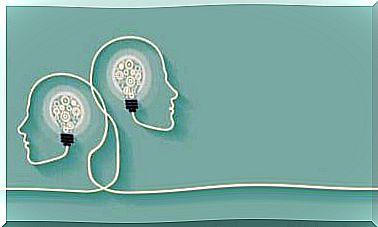Emotional Regulation And Eating Disorders

Maybe you never took the time to think about it, but not everyone has the same ability to recognize, accept, and regulate their emotions. Now that I’ve said it, does anyone come to mind who seldom realizes that something is bothering them? Or that someone you know has trouble dealing with their negative emotions? So much so that most of the people who know this person know that they have a problem with fear or grief?
You might even recognize yourself in this description. The reality is that recognizing, accepting, and regulating our emotions are skills that significantly influence various mental disorders, including eating disorders. Let’s find out how this relates!
“The first wealth is health.”
Emerson
Emotional regulation and eating disorders
First of all, it should be noted that, according to various scientific studies, the emotional regulation of people with eating disorders is different from that of people who do not suffer from mental illness. On the one hand, they are more prone to alexithymia. That is, these people have more difficulty recognizing and describing feelings. That seems logical, because if you don’t know how to identify the emotions you are feeling, you will have problems choosing suitable strategies to regulate them.
In other words, if you don’t realize that you are angry, how are you going to control that anger? Complicated, isn’t it? Well, that’s one of the problems that people with eating disorders have. There is also another handicap, namely the use of inappropriate strategies to reduce discomfort. That is, if you know you are feeling bad, you are not “handling” that discomfort in a positive and adaptable way.
“A wise man should remember that health is the greatest human blessing and learn how to use his own thoughts to benefit from his illnesses.”
Hippocrates

Sufferers try to manage these emotions through flight, avoidance, or denial. These behaviors typically provoke a rebound effect that leads to a chronification of negative emotions. Let’s look at an example.
A person with this problem feels bad because they think that if they eat they will get fat. So he tries to cope with this fear by restricting food intake. In the short term, this will lessen his inconvenience. In the long term, however, this behavior will generate more and more negative emotions in front of ever smaller amounts of food. The discomfort keeps getting bigger.
This vicious circle is also passed through by people who eat an above-average amount. They eat because they feel bad, but then torture themselves after eating too much, whereupon they try to vomit. This leads them to new negative emotions because they know what they are doing is wrong.
Why is it important to improve emotional regulation in people with eating disorders?
From what we have already explained, the role of emotional regulation in eating disorders and the need to improve it is clear. On the one hand, it is important to replace eating restrictions or binge eating for other coping methods and more adaptive emotional management.
However, we don’t just have to work to improve pathological behavior when suffering from this disease. The reality is that the ability to identify, accept and express our emotions benefits us in all areas of life and creates a sense of physical and mental wellbeing.

In addition, the ability to regulate our negative emotions through adaptive coping strategies will decrease the amount of fear, sadness, and anger we feel. Researchers have found that functioning emotional regulation in people with eating disorders significantly improves the prognosis.
“Eating is not just a material pleasure. Eating well makes life a spectacular joy and contributes significantly to goodwill and happy company. It is of great importance to morality. “
Elsa Schiaparelli
Images courtesy of Olenka Kotyk, Nordwood Themes, and Jairo Alzate.









